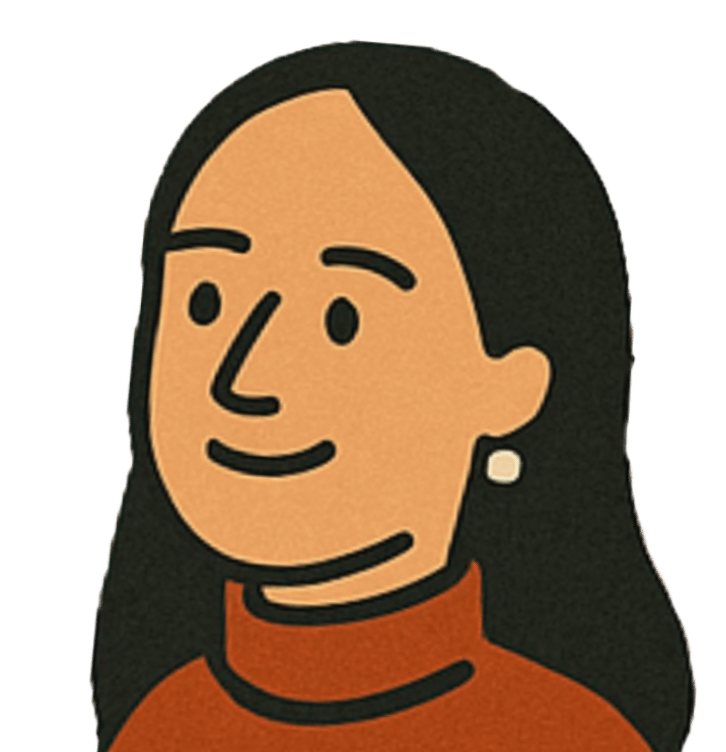The workplace is moving beyond hierarchies and competitive individualism, and so is our approach to management.
In this conversation, Yi Yin, a female leader in workforce innovation, sits down with Karina Muñoz, a multinational professional, to discuss how female mentorship, cross-cultural collaboration, and people-first management are reshaping workplace growth.
Karina Muñoz who studied and worked in the U.S. and Mexico before joining Wolfram, has taken on multiple roles in outreach, content development, and international communication. She now leads the team's education advocacy efforts. With Yi's mentorship, she has expanded her professional identity and embraced new opportunities beyond her initial scope.
This conversation highlights the power of diverse perspectives, mentorship, and leadership—fostering talent rather than controlling it. It's about a new era of work culture—where women support women and international experiences become a strength.
Work Relationship Beyond Borders
Q: Karina, can you share a bit about your background—where you studied, your early career, and what led you to join Yi's team?
Karina: I've always been passionate about education and working with others, so I initially studied child psychology in Mexico and worked as a kindergarten teacher. Later, I applied for the Fulbright Scholarship, which allowed me to pursue a master's in Learning Sciences at Arizona State University (ASU).
After graduating, I worked at ASU's Career Services, helping students navigate job applications and career planning. That experience made me realize I enjoyed helping people grow, but I wanted to do it in a different capacity—beyond a traditional school setting.
When I moved back to Mexico, I worked as a primary school coordinator, but I knew I wanted to explore something beyond the classroom. That's when I found this job at Wolfram, and it seemed like the perfect mix—education, technology, and communication.
Q: Karina, how did your international experience in U.S. universities shape the way you work and communicate?
Karina: My journey started early with the International Baccalaureate (IB) program in high school, where I wrote and spoke in English regularly. Later, I pursued a dual-degree program that introduced me to U.S. universities, preparing me for my master's.
By the time I started working in the U.S., I had already adapted to different communication styles, expectations, and work environments. One major shift was email communication—while face-to-face interactions are more common in Mexico, emails dominate professional communication in the U.S. I had to learn the nuances of email etiquette, and now, working remotely in a global team, clear written communication is crucial.
Yi: I can completely relate. I had to recalibrate my entire work routine—from communication styles to professional expectations. Working in a global team requires even more intentionality in communication.
Q: Have you faced challenges working remotely with an international team?
Karina: Not really! I love the diversity of ideas and perspectives in a global team. It keeps things interesting. The only real challenge is time zones—sometimes scheduling meetings can be tricky, but I've learned to adapt and plan ahead.
Redefining Management - Support Artists in Your Team
Q: Yi, what's your philosophy on managing people and helping them grow?
Yi: I see management as similar to artist management—helping employees discover their unique strengths and giving them the platform to shine. Karina has a talent for following up and maintaining relationships, which made her perfect for leading outreach. The job description was just a doorway—once she was in, it was about finding where she naturally excelled.
Q: Karina, how has your role evolved since joining the team?
Karina: I started with outreach to universities in the U.S. As I gained experience with educational programs, I began conducting student interviews for Wolfram Summer School, creating content, and leading outreach efforts in South America. The role grew beyond what I originally expected.
Q: Karina, what has been different about working under a female leader compared to other experiences?
Karina: There's a sense of solidarity—a shared understanding of the extra effort women often need to put in to succeed. It's not about superiority, but about creating a space where women feel heard, supported, and encouraged to grow.
Yi: I've also noticed that women managers tend to acknowledge the emotional aspects of work—they recognize when a task is tedious or emotionally draining, and they check in on your well-being. That makes a huge difference in the workplace culture.
Takeaways for Young Professionals
Q: What advice would you give to young professionals from international backgrounds who feel unsure about finding growth in their careers?
Karina: Believe in yourself and take action. If you hesitate because you think you're not 'qualified enough' or 'fluent enough,' you'll hold yourself back from opportunities. Take the leap, send out applications, and trust that your perspective is valuable.
Yi: Put yourself in the game—apply, take interviews, and seek opportunities to showcase your skills. Just like an artist's audition, you need to step on stage before you can shine.
Many international professionals hesitate, questioning whether they 'fit' the dominant profile. Don't overthink—start applying. Once you're in, your talent will speak for itself.
Q: How can more companies build an environment where international perspectives and diverse leadership thrive?
Yi: Give international talent a chance. Even with my own background, I had doubts about hiring internationally at first. But after seeing the talent and fresh perspectives Karina brought in, I realized how much companies can gain by embracing diversity. We need to open doors, break biases, and trust that different backgrounds bring unique strengths.
Q: If there's one key takeaway from your work relationship that could inspire other women in tech, what would it be?
Karina: Build meaningful, trust-based relationships with your colleagues and mentors. Don't be afraid to bring your full self to work.
Yi: Don't fight to become someone else's idea of success. Women in tech, especially those from international backgrounds, often struggle with self-doubt. Instead of forcing yourself into a predefined mold, discover your strengths and build from there. Your success comes from amplifying who you are, not erasing it.

